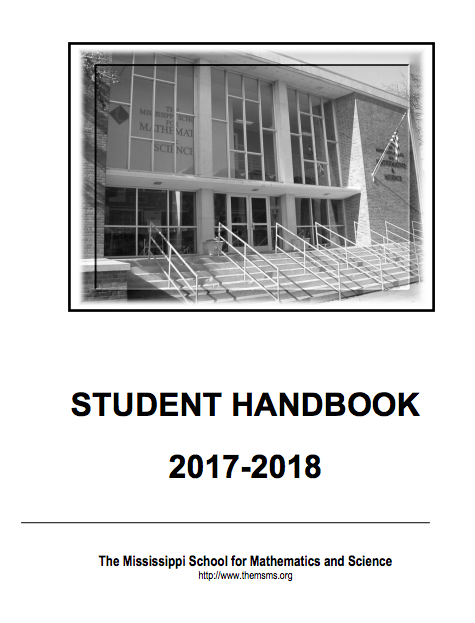First Bills of 2017-2018 Have Passed the Senate
The MSMS Student Handbook
September 25, 2017
The first two bills of the 2017- 2018 school year have passed through the senate and are making their way up the hierarchy to administration.
One of the Senate Bills, written by senator Kendall Wells, acts to change the hours for Saturday school from 8 a.m.- noon to 8 a.m.- 10 a.m. Saturday school is assigned to students who receive three or more tardies or one unexcused absence. In Saturday school, students are not allowed to eat, drink, or listen to music.
Conflicts in the bill lie in the schedule of Saturday school and brunch in the cafeteria. On weekends, the cafeteria is open from 10 a.m. to noon, but Saturday school’s 8 a.m. start makes the student unable to get a meal before their time at Saturday school begins. Students must go to school until noon without eating anything since Friday dinner.
People opposing the bill claim that two hours of Saturday school are too similar to study hours and feels as though two hours do not enforce the punishment. However, some disagree, because waking up early on Saturday mornings destroys the most revered night of sleep at MSMS. They asked students to look at the bill through another perspective. One of the main people supporting the bill, quoted in an interview, “don’t judge a situation you’ve never been in.”
The second bill, written by senior Greyson Howard, pertained to computer monitor and TV size restrictions. This senator proposed a bill that will increase the computer monitor maximum from 24” to 42”. This was made in the hopes of giving the MSMS students an extra piece of freedom. Howard explained, “I believe that this is a step in the direction of MSMS students being treated more like adults.”
After nearly 45 minutes of questioning, the bill was passed. If the bill is approved by the administration, then all of the current and future MSMS students will be allowed to bring in their bigger computer monitors and/or TVs for their rooms.
Harpreet Singh, Vice President of Student Government Association, explained the process of advancing these issues. In order for a bill to be passed, a senator must first propose a “bill of resolution.” Then, the bill is then looked over, discussed and changed. If it is agreeable, it is then sent to the administration. The administration has the power to veto or pass it so that it becomes a part of the handbook. If a bill does not pass, it can be brought up again in the following year. Singh said, “If it (one certain topic) fails to pass that year, it can be brought back next year.









